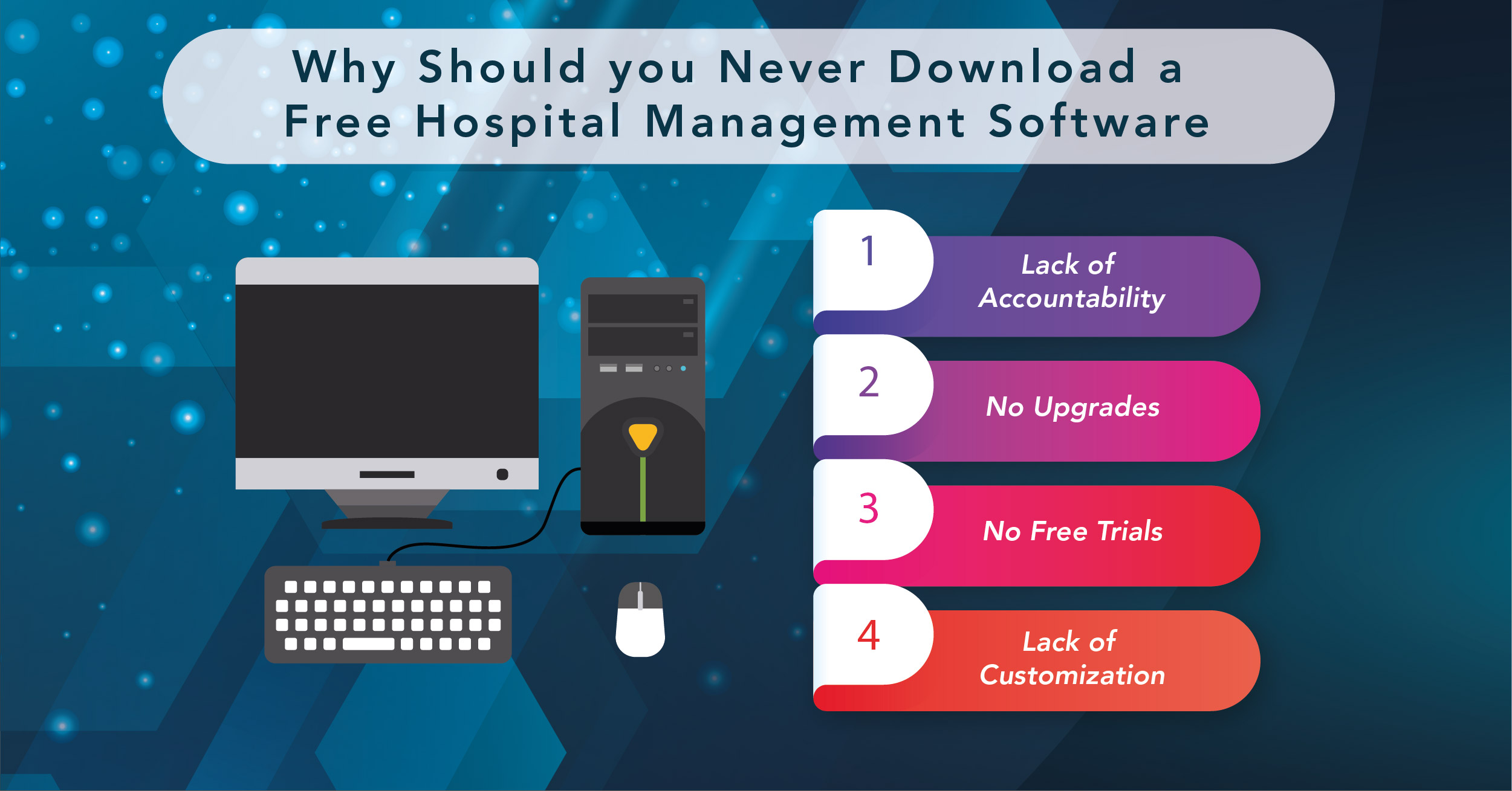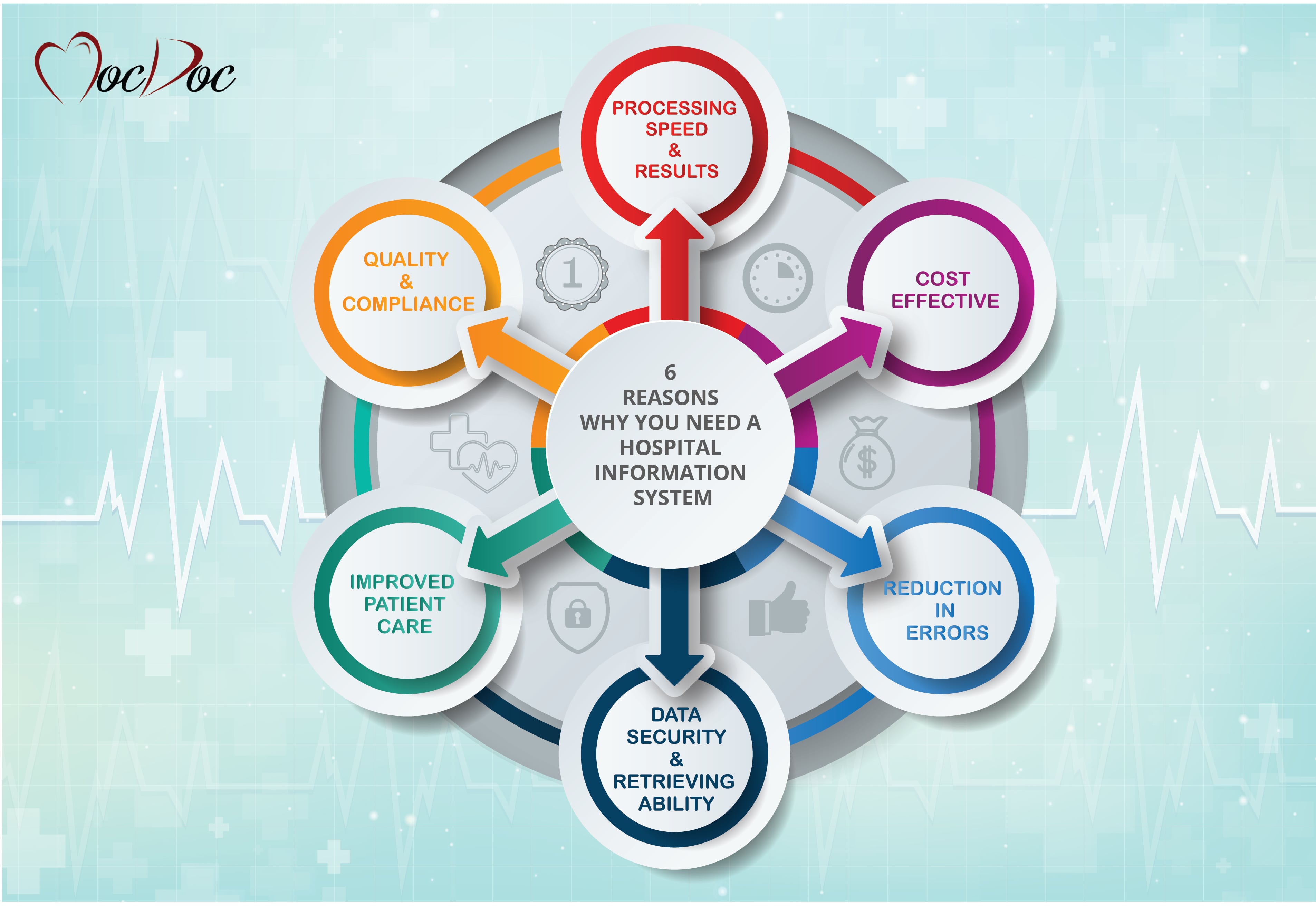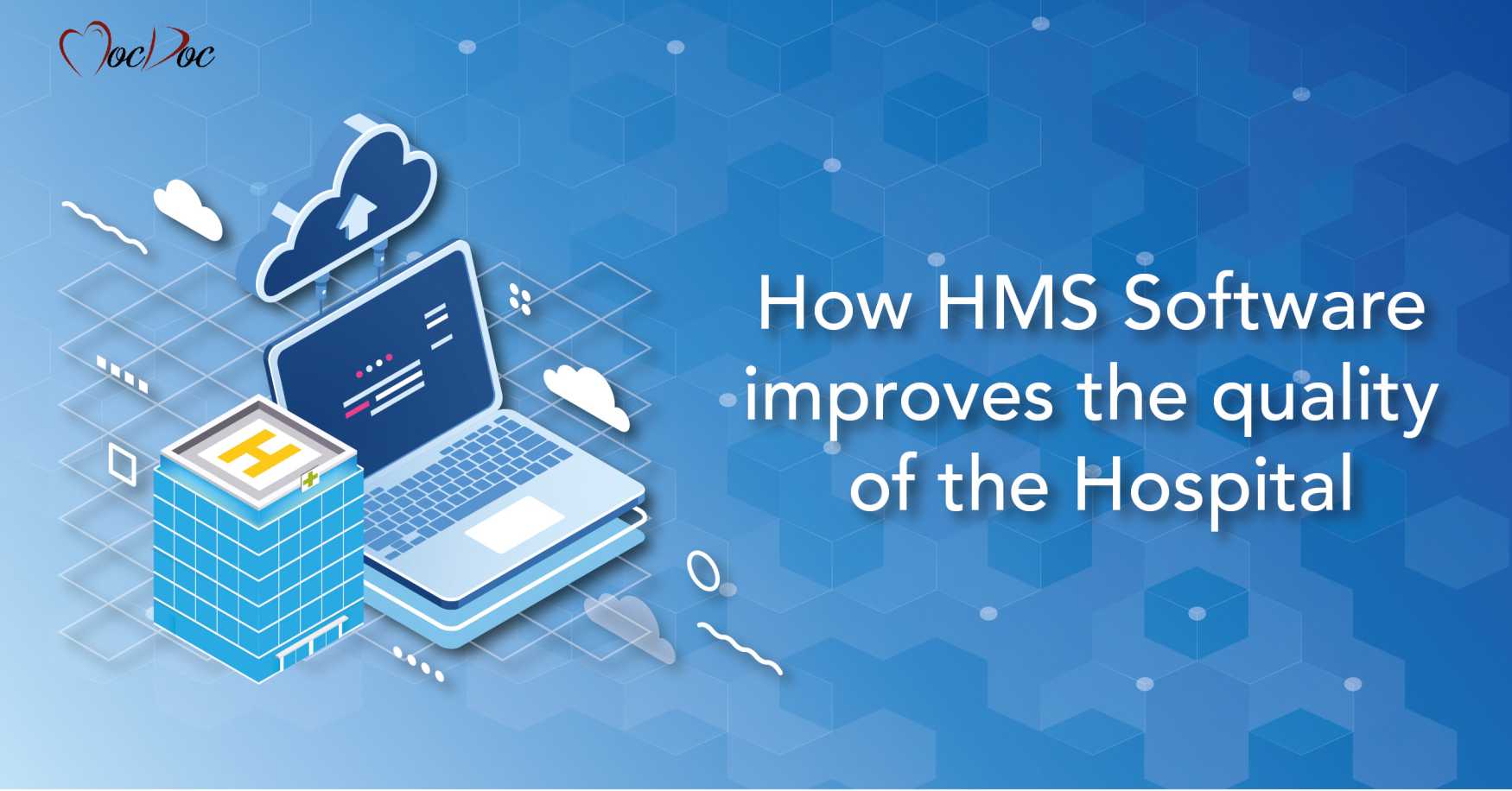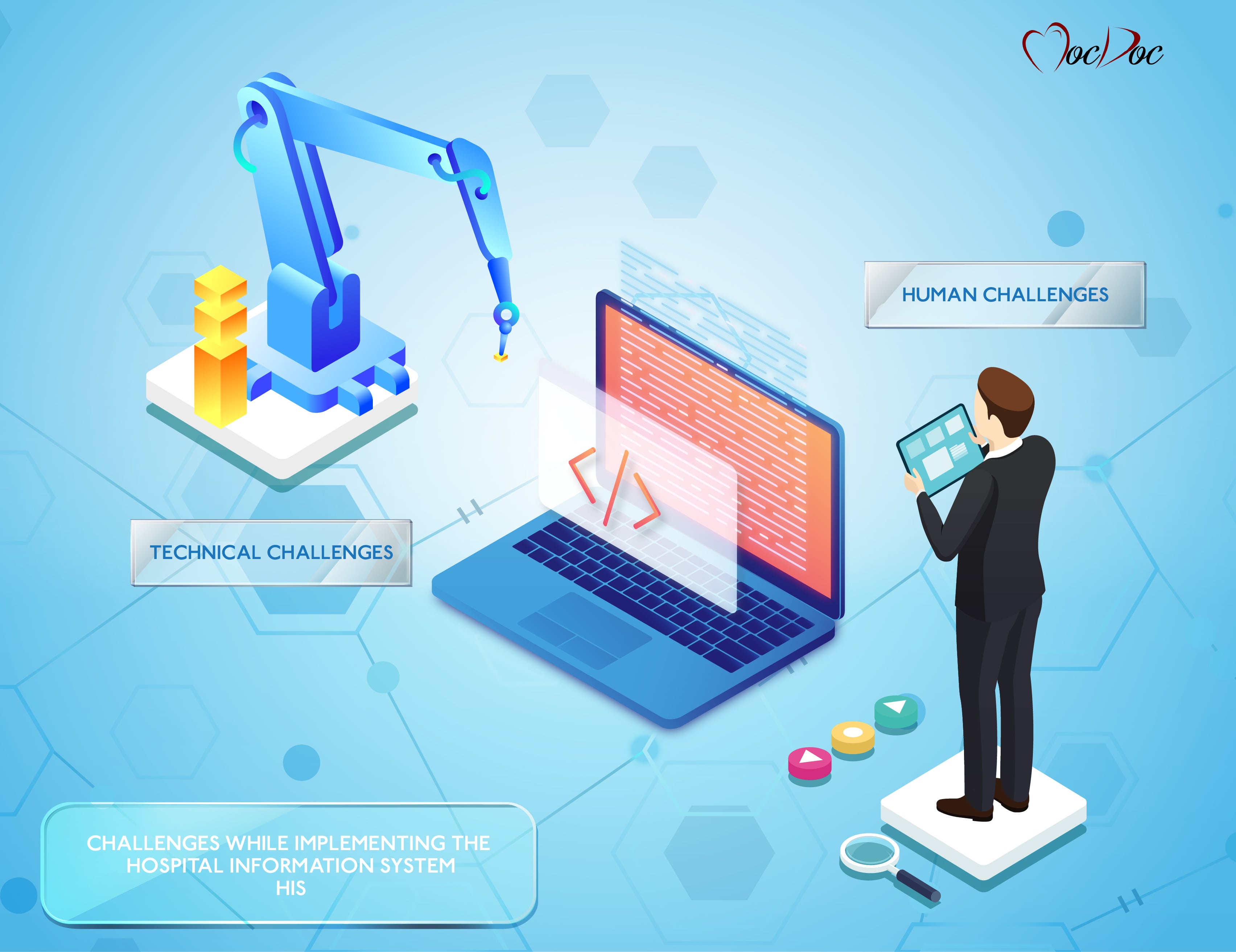MocDoc's Offerings
How to Implement HMS Successfully in Hospitals?
Published By
Sanjana
2019040110:42:25
Category HMS
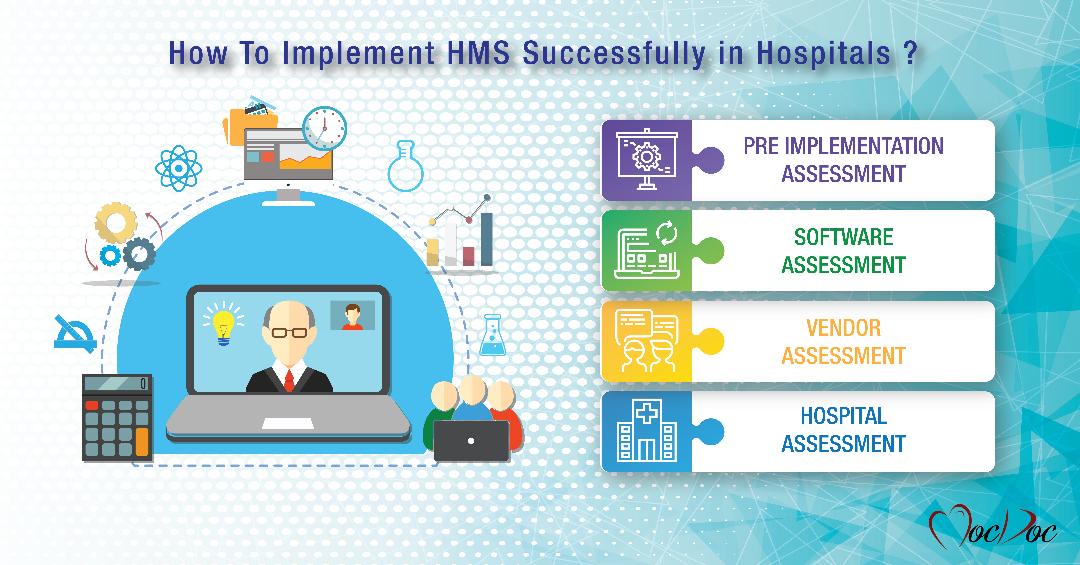
When compared to other industries, the healthcare sector is improving, with the help of advanced technologies like the Hospital Management System (HMS). The current medical care computerization is being hampered due to a lack of a perfect interface between computers and medical care providers.
The two main issues that are commonly faced during implementation of an HMS are as follows
1. HMS implementation begins but the users start facing issues by the end
This is generally due to the inflexibility of the HMS software, a weak administrative will, and an inexperienced team for implementation.
2. HMS implementation gets completed, but only a single part of the functionality gets implemented
This is due to non-user-friendly software or unplanned and unconfigured executions.
Pre-Implementation Assessment:
All hospital administrators who implement the HMS software in their hospitals will be apprehensive that the process may end in a partial or complete failure and measures should be taken early in order to prevent such an event from happening. The software should be well assessed before being purchased by the hospital.
Software Assessment:
Choosing the right kind of software is one of the crucial and primary steps for getting the best results.
Earlier, all HMS Software had a single development cycle starting with a single hospital being computerized by a local developer for a single hospital. However, this type of HMS development is outdated. In such cases, there is a risk of the vendor providing software that was customized for a different hospital. Implementing them may cause various issues, and it may cost more in the long run. It's better to purchase the software from a firm, that specializes in hospital management software than getting any software company to design software for your hospital.
It's better to choose software that is easy to upgrade, scalable, and not hardware intensive. Cloud-based online software is better than offline software in these aspects. The providers could also easily fix any errors or bugs in the case of online software.
Another aspect to be considered is to check if the customization of the software is done primarily through programming code or by using master tables during implementation. Hospitals may require some form of alteration to the purchased software, so as to better suit their needs, and in the case of master tables, such changes may easily be made by the hospital itself. In the case of online software, this may not matter much, as maintenance and support are provided by the software provider.
Vendor Assessment:
Only a few vendors of international or national repute can be trusted easily. A drawback with a large vendor is that they don’t always accommodate the requirements of small hospitals. In the case of small vendors, the hospital administrators may have to do thorough research to see if they are trustworthy.
An important aspect to be known is whether the current implementation team will be available during the entire implementation cycle. Checking the attrition rate of the software company, and discussions with other hospital administrators may give you an idea about this.
Visits to Hospitals with Hospital Management Systems:
A well-planned visit to hospitals where the software has been implemented will give you insights on the performance of the software, the support provided by the vendor, and if the vendor has achieved all the goals that were initially planned. To get a good picture, it's better to visit hospitals like your own, in terms of capacity, number of specialties, and number of departments, as well as hospitals that have implemented the software that you are considering. This will give you an idea, not only about the trustworthiness of the vendor but also about how well the software will be suited to your hospital.
Discussions with hospital administrators who have previously implemented the software in their hospitals will also give you good insights on the possible difficulties you may face during the implementation process, and on how to overcome them.
Getting your Hospital ready:
Problems may arise in HMS implementation, due to issues within the hospital. The lack of a systematic and uniform workflow within all the departments in the hospital may make the implementation process difficult. Information regarding the various equipment used, tests performed, schedules of doctors in different departments, etc must be readily available so that it can easily be imported into the system.
An important aspect is the cooperation of the various end-users, that is, the hospital employees. They have to provide enough awareness of the usefulness and importance of implementing the HMS software. The implementation may put additional stress on the employees until they get used to the system, and this may hamper the efforts of the hospital administration.
HMS implementation begins with a pre-implementation phase, in which software is chosen and the hospital prepares for the change, followed by the implementation phase and the post-implementation phase, in which the final kinks are ironed out. The whole process could be made smooth with a thorough pre-implementation phase.
Choosing software that is well suited to your hospital, having clearly defined workflows, and complete information about the working of the hospital will help you to easily implement the HMS in your hospital. Having a good team, and ensuring the cooperation of the hospital employees would help the hospital achieve its goals with the HMS.
Related Articles
Why you should never download ...
When searching for software, almost everyone looks..... Read more
6 Reasons Why You Need a Hospi...
Our present modern information system makes use of..... Read more
How HMS improves the quality o...
Hospital Management Software is considered to..... Read more
Challenges while implementing ...
Hospital Management System has been use..... Read more
